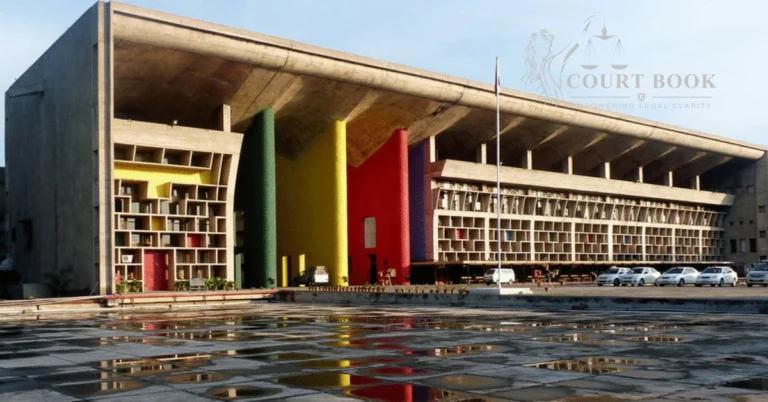The Punjab and Haryana High Court has ruled that a candidate who was unjustly disqualified on medical grounds for the position of Constable cannot be denied relief, even if the authorities have filled the position during the pendency of the legal proceedings.
Court's Observation on Unjust Disqualification
A division bench comprising Justice Sanjeev Prakash Sharma and Justice Meenakshi I. Mehta held:
"Relief cannot be denied to the appellant merely because the respondents have chosen to fill up the posts in spite of the pendency of the writ petition and the notices having been served upon them."
The Court emphasized that the authorities proceeded at their own risk by filling the posts while the case was still under judicial consideration. Therefore, the argument presented by the respondents was deemed legally unsustainable.
Background of the Case
The case involved a candidate named Ranbir, who applied for the position of Male Constable (General Duty) in 2015 under the Haryana Staff Selection Commission (HSSC) recruitment process. He successfully cleared both the written and physical examinations and was then sent for a medical evaluation.
Initially, the Civil Surgeon referred him to PGIMS, Rohtak for further examination, where the medical report indicated evidence of 'right dorso-lumbar spine scoliosis.' Based on this, the Civil Surgeon declared him medically unfit for the post.
Legal Arguments
The petitioner contended that the diagnosis of 'right dorso-lumbar spine scoliosis' did not constitute a legitimate medical disqualification. The respondents, on the other hand, argued that the Civil Surgeon had clarified the possible complications and implications associated with this condition, justifying their decision to disqualify the candidate.
Read also: Punjab & Haryana High Court Warns Against Misuse of Police Targets in Anti-Drug Drive
Court-Ordered Medical Re-Evaluation
The Single Judge initially directed the petitioner to undergo another medical assessment at PGIMS, Rohtak to determine his fitness for service. The report submitted in 2018 stated that the potential complications or impact of the condition could not be precisely predicted, as it depended on multiple factors.
The appellant’s counsel argued that this uncertainty should not serve as grounds for denying him the appointment.
Findings of the Division Bench
Upon reviewing the case, the Court examined the State's basis for declaring the appellant medically unfit. The Court found that the Additional Director General of Police, Administration, Haryana, Panchkula, had submitted an affidavit, which included a report by two doctors. However, these doctors merely cited complications from medical textbooks rather than providing their own professional assessment.
The Court noted:
"Two doctors downloaded the complications as available from the books and conveyed it to the authorities and did not give their own opinion."
Additionally, the Court pointed out that the Civil Surgeon, Sirsa’s medical examination report did not contain a direct medical observation declaring Ranbir unfit.
Examining the medical reports, the Court observed:
"We only find that while it has been stated that there is evidence of 'right dorso-lumbar spine scoliosis,' there is no observation of the doctor for treating him unfit."
Justice Prakash further noted:
"It is apparent that while Civil Surgeon, Sirsa has declared the appellant as unfit, no doctor from PGIMS, Rohtak or from PGIMER, Chandigarh has declared him unfit for discharging duties of constable."
Read also: Strict Entry Checks Over Blanket Bail Denials: P&H High Court’s View on Foreign Nationals
The Court asserted that a specific expert medical opinion is necessary for declaring a candidate unfit. A mere 15-degree curvature in the spine does not automatically qualify as a deformity that would prevent someone from fulfilling the responsibilities of a Constable.
The Court acknowledged that while it lacks the expertise to determine medical fitness, a Special Medical Board consisting of seven doctors from relevant fields such as Orthopedics, Neurology, Neurosurgery, and Internal Medicine had examined the appellant and found him fit. Denying him the appointment in light of this expert evaluation would be an injustice.
Court’s Decision and Directions
In light of these findings, the Court ruled in favor of the petitioner, ordering the authorities to grant him the benefit of the appointment. The order specifies that the petitioner should receive the same benefits as candidates lower in merit who were already appointed.
The Court directed:
"His pay fixation shall be done accordingly, and actual benefits shall be given from the date of passing of this order. The exercise shall be completed within a period of one month from the date of this order."
Mr. Sunil Kumar Nehra, Advocate, Mr. Rahil Mahajan, Advocate, Mr. Arjun Dosanj, Advocate and Mr. Akash Gahlawat, Advocate, for the appellant.
Mr. Saurabh Mohunta, Senior Deputy Advocate General, Haryana.
Title: Ranbir v. State of Haryana and others















